10:16
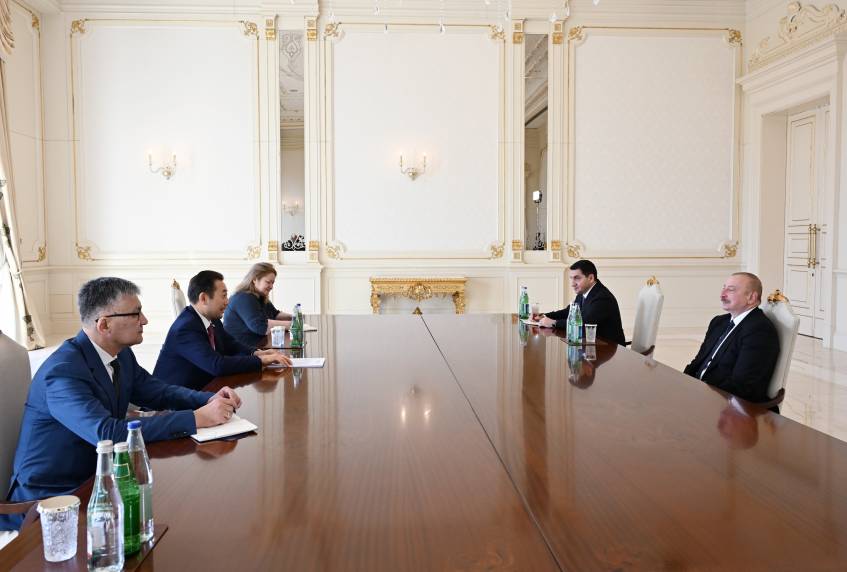
Bloomberg Businessweek
June 07, 2010, 1:23 PM
By Ercan Ersoy and Stephen Bierman
Turkey and Azerbaijan’s natural-gas trade agreement may trigger investments in Caspian Sea fields and boost exports of the fuel to Europe, energy ministers from the two countries said today.
Azerbaijan aims to sell gas from the BP Plc and Statoil ASA-led Shah Deniz project to Europe after agreeing on transit through Turkey as well as supplies to the country, its largest customer, Azeri Energy Minister Natig Aliyev said in Istanbul after meeting with his Turkish counterpart. The prices for gas supplies to Turkey and transit weren’t disclosed.
European consumers have sought to cut dependence on Russian gas supplies after disputes between OAO Gazprom and Ukraine, the Moscow-based gas exporter’s main transportation route, halted supplies in 2006 and 2009. European energy companies are vying for supplies from the $20 billion second phase of Shah Deniz as they plan pipelines from the region.
“This opens the door for the Shah Deniz consortium to start negotiations with customers and look at the different transportation solutions for gas to Europe,” Kjersti Morstoel, a Statoil spokeswoman, said today by telephone.
Azerbaijan will seek to ship 10 billion cubic meters of gas a year from the second phase of Shah Deniz across Turkey to Greece, Bulgaria, Serbia and Syria, among other gas consumers, Aliyev said. Shah Deniz-2 may provide 16 billion cubic meters of gas a year after starting in about 2016, according to the State Oil Co. of Azerbaijan, or Socar, a partner in the project.
Re-Exporting Gas
Turkey plans to buy 2 billion cubic meters of gas in 2017 from the second phase of Shah Deniz, which may rise to 6 billion cubic meters in 2019, Turkish Energy Minister Taner Yildiz said after the meeting.
“This agreement will trigger other major energy projects in the region,” Yildiz said.
Turkey will get the right to re-export gas from Shah Deniz- 2, Yildiz said. Turkey’s ability to profit from differences between domestic and European prices has damped interest in pipelines across its territory, Statoil said last year.
Re-exporting gas from Shah Deniz-2 wasn’t discussed, Socar vice president Elshad Nassirov said today via text message.
The OMV AG-led Nabucco pipeline is vying with smaller volume projects such as the Interconnector Turkey-Greece-Italy, or ITGI, led by Edison SpA and Depa SA and Statoil and Elektrizitaets-Gesellschaft Laufenburg AG-led Trans Adriatic Pipeline AG, or TAP, to ship Caspian gas to Europe.
‘Right Direction’
“This is a step in the right direction,” Reinhard Mitschek, managing director of the Nabucco project, said in an e-mailed statement.
Settling the commercial aspects of the agreement may take an additional six months to eight months, Murat Heydarov, adviser to the head of Socar, said in Baku last week.
Yildiz said today the price for Azeri gas supplies is “in line” with market levels such as those from Russia. The deal lessens Turkey’s liability to take-or-pay contracts, and the country will now revise “all” such accords, Yildiz said. Turkey is Russia’s second largest gas consumer under such contracts outside the former Soviet Union, following Germany, according to Gazprom.
Petkim Petrokimya Holding AS, a Turkish chemicals maker owned by Turcas Petrolculuk AS and Socar, will get 1.2 billion cubic meters a year of Azeri gas at a “favorable” price, Yildiz said. The Azeri deal won’t raise consumer prices, he said.
LINK: http://www.businessweek.com/news/2010-06-07/turkish-azeri-gas-accord-may-boost-investments-europe-exports.html

Aleksandar Vučić, President of the Republic of Serbia, made a phone call to the President of the Republic of Azerbaijan Ilham Aliyev, on April 16, briefing him on the pressures Serbia has been encountering recently and requesting the support of the friendly...
16 April 2024, 20:36Dear Mr. Pellegrini,
I sincerely congratulate you on your election as the President of the Slovak Republic.
The development of friendly relations with Slovakia holds great significance for us. Currently, there are good opportunities for enriching the...
15 April 2024, 13:06Prime Minister Muhammad Shehbaz Sharif of the Islamic Republic of Pakistan made a phone call to President Ilham Aliyev of the Republic of Azerbaijan on April 9.
Pakistan's Prime Minister congratulated the head of state on the occasion of Eid al-Fitr and wished...
09 April 2024, 19:52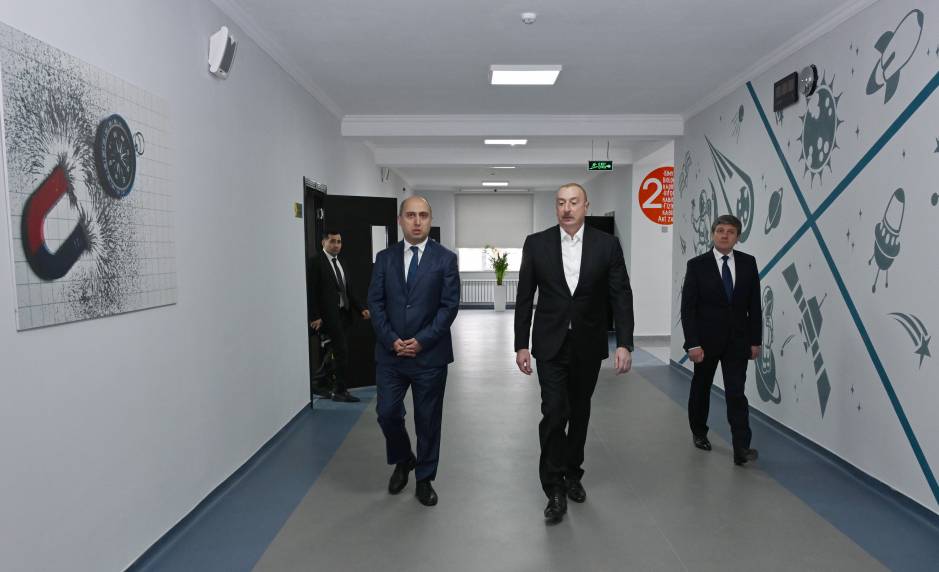
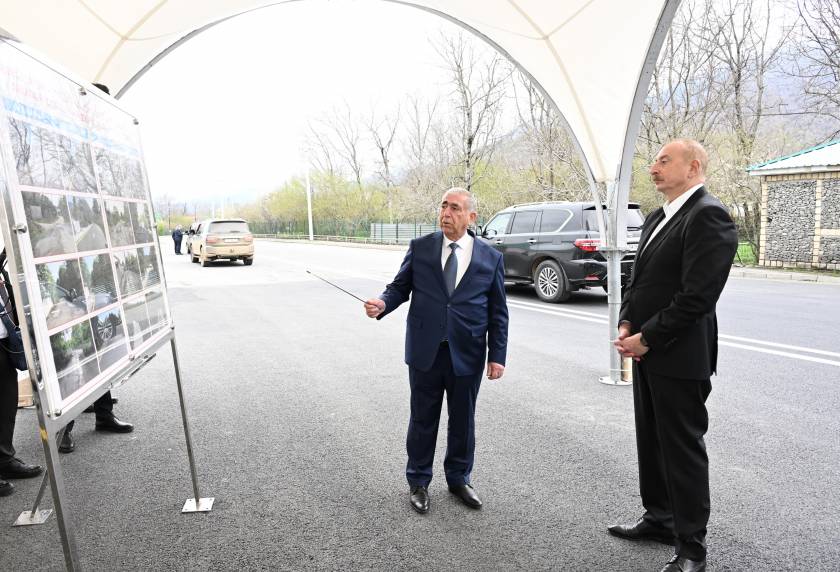
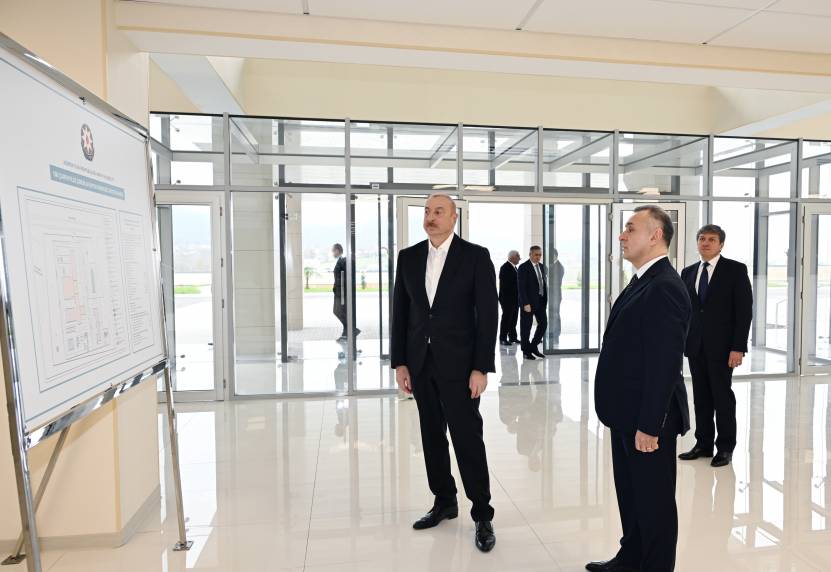
On April 9, President Recep Tayyip Erdogan of the Republic of Türkiye made a phone call to President Ilham Aliyev of the Republic of Azerbaijan.
The President of Türkiye congratulated President Ilham Aliyev on the occasion of Eid al-Fitr and wished the people of...
09 April 2024, 15:39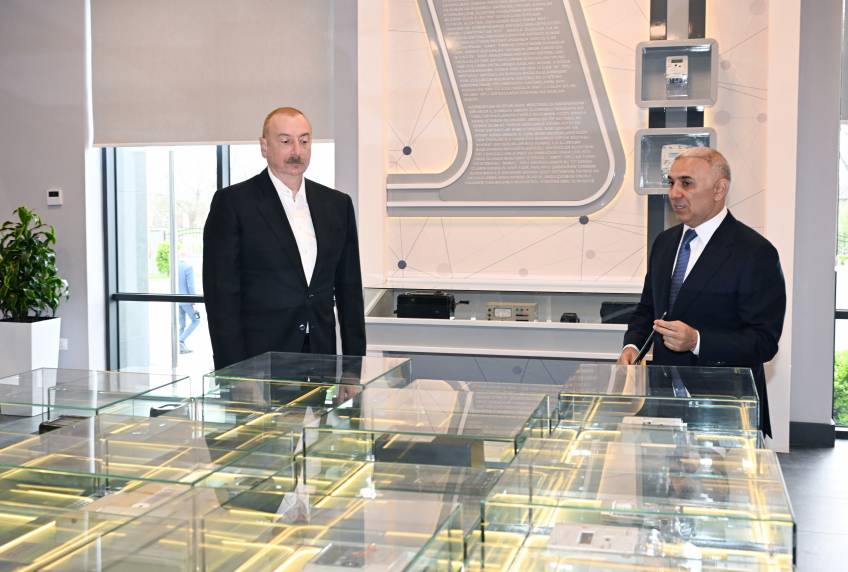
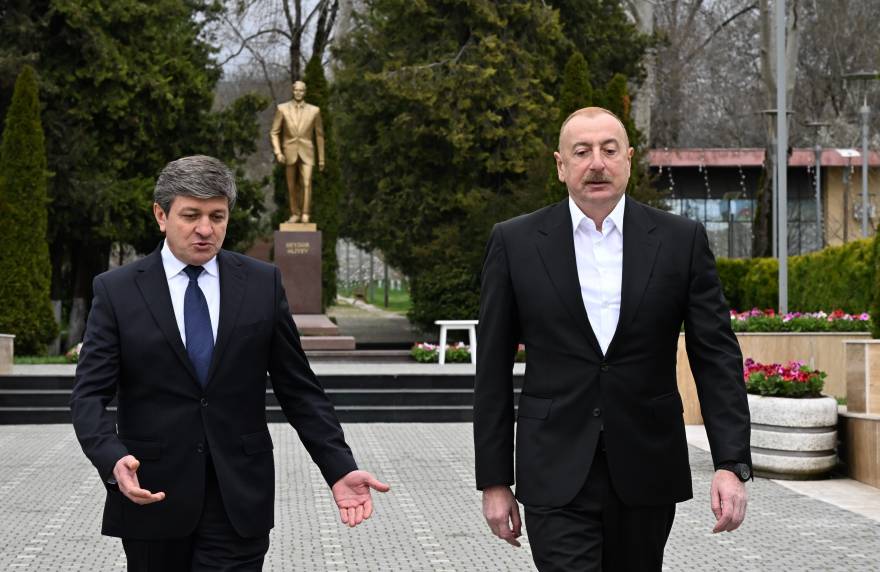
President of the Republic of Azerbaijan Ilham Aliyev has toured the Qabala district.
The head of state visited the monument to National Leader Heydar Aliyev erected in the city of Qabala and participated in the opening ceremonies of the 110/35/10 kV "Hajialili"...
09 April 2024, 15:14